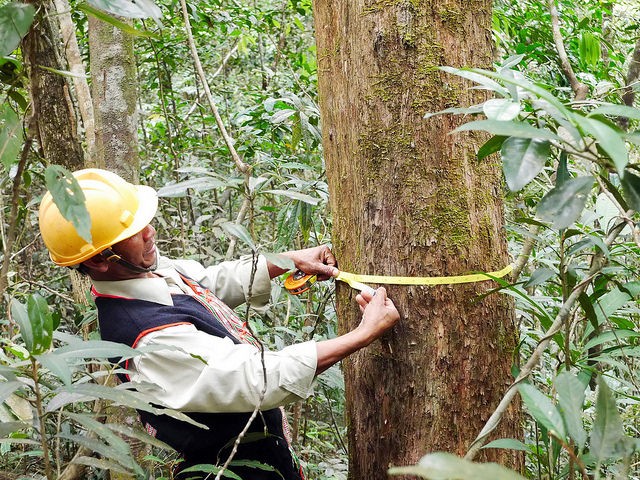Speeches Shim

The U.S. Agency for International Development’s Lowering Emissions in Asia’s Forests (USAID LEAF) is a five-year project that promotes regional collaboration on forest management to avoid deforestation and forest degradation. Forests in Asia and the Pacific make a significant contribution to reducing the negative effects of climate change since forests are one of nature’s most efficient ways of removing carbon dioxide from the atmosphere and storing it. They also are an important source of income and livelihoods, but are often overused for agriculture, infrastructure and other uses.
SHARING INNOVATIVE FOREST MANAGEMENT TOOLS
USAID is constantly seeking innovative ways to encourage better forest management and empower communities to contribute to regional and global efforts to address climate change. As part of the Lower Mekong Initiative, the project develops training tools to help Cambodia, Laos, Thailand and Vietnam reduce emissions from the forestry and land use sectors. These trainings address forest carbon stock assessment, participatory forest monitoring, drivers of deforestation and degradation, gender-integrated planning and leadership. For example, the project is advancing climate change education in Southeast Asia with a climate change curriculum developed with universities across the region.
REDUCING GREENHOUSE GAS EMISSIONS
The project supports governments in developing policies that protect forests and reduce greenhouse gas emissions. It also helps local forestry officials to improve measuring forest biomass, monitoring changes in forest carbon stocks and determining economic valuation of forest ecosystem services. All this information is important in prioritizing landscapes for low emission land use planning that balances economic growth, environmental protection, social equity and emission reduction. A disruption in this balance can result in increased emissions of greenhouse gases, ultimately leading to unforeseeable and undesirable climatic changes. The project also identifies incentives and trade-offs in emerging markets to engage the private sector in improving land management.
PROMOTING REGIONAL PARTNERSHIPS
Partnerships focus on developing common policies and standards in forest management. The project collaborates with existing regional platforms, such as the Association of Southeast Asian Nations and the Agriculture, Forestry and Other Land Use Working Group, to replicate and scale up ways to mitigate deforestation and forest degradation across the region. For example, Vietnam’s Lam Dong province has launched a “Provincial Reducing Emissions from Deforestation and Forest Degradation (REDD+) Action Plan and Papua New Guinea” as a way to share its success in undertaking a low emission land use planning process.
PARTNERS
The project is implemented by Winrock International with partnership from SNV–Netherlands Development Organization, Climate Focus and RECOFTC–The Center for People and Forests.
Click here for the pdf version.

Comment
Make a general inquiry or suggest an improvement.